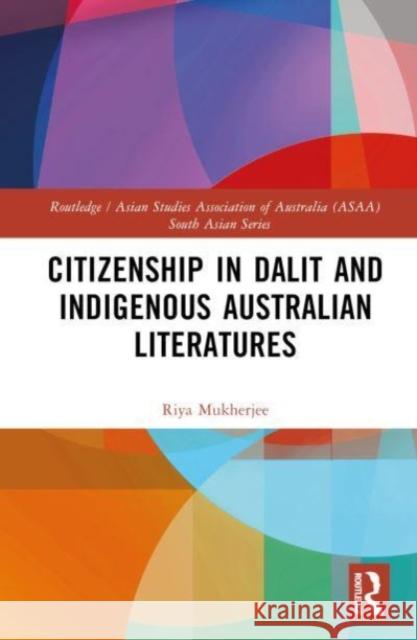Citizenship in Dalit and Indigenous Australian Literatures » książka
Citizenship in Dalit and Indigenous Australian Literatures
ISBN-13: 9781032292854 / Angielski
Citizenship in Dalit and Indigenous Australian Literatures
ISBN-13: 9781032292854 / Angielski
(netto: 723,00 VAT: 5%)
Najniższa cena z 30 dni: 654,86
ok. 16-18 dni roboczych.
Darmowa dostawa!
Citizenship in Dalit and Indigenous Australian Literatures examines the difference in citizenship as experienced by the communities of Dalits in India and Aboriginals in Australia through an analysis of select literature by authors of these marginalised groups. Aligning the voices of two disparate communities, the author creates a transnational dialogue between the subaltern communities of the two countries, India and Australia, through the literature produced by the two communities. The Covid-19 pandemic has made the divide that exists between the performative citizenship rights enjoyed by the Dalits and the aboriginals and the respective dominant communities of their countries more apparent. The author addresses the issue of this disparity between discursive and performative citizenship through a detailed analysis of select Dalit and Australian aboriginal autobiographies, in particular the works by Dalit autobiographers, Baby Kamble and Aravind Malagatti and aboriginal autobiographers Alice Nannup and Gordon Briscoe. The book uses the dominant tropes of the individual autobiographies as a background to unfurl the denial of citizenship, both in the discursive and the performative form, using the parameters of equal citizenship. In doing so, the author also raises important, groundbreaking questions: How is the performativity of citizenship foregrounded by the Dalits and aboriginals in the literary counter-public? How does this foregrounding evoke violent retribution from the dominant sections? And does the continued violation of performative citizenship point to the dysfunctionality of the performative citizenship status accorded to the Dalits and the aboriginals? Questioning the liberal legacy of political, civil and social citizenship, this book will be of interest to researchers studying Dalit and Aboriginal Literature, Interdisciplinary Literary Studies and World Literature, South Asian Studies and researchers dealing with the question of citizenship.
Citizenship in Dalit and Indigenous Australian Literatures examines the difference in citizenship as experienced by the communities of Dalits in India and Aboriginals in Australia through an analysis of select literature by authors of these marginalised groups.
Aligning the voices of two disparate communities, the author creates a transnational dialogue between the subaltern communities of the two countries, India and Australia, through the literature produced by the two communities. The Covid-19 pandemic has made the divide that exists between the performative citizenship rights enjoyed by the Dalits and the aboriginals and the respective dominant communities of their countries more apparent. The author addresses the issue of this disparity between discursive and performative citizenship through a detailed analysis of select Dalit and Australian aboriginal autobiographies, in particular the works by Dalit autobiographers, Baby Kamble and Aravind Malagatti and aboriginal autobiographers Alice Nannup and Gordon Briscoe. The book uses the dominant tropes of the individual autobiographies as a background to unfurl the denial of citizenship, both in the discursive and the performative form, using the parameters of equal citizenship. In doing so, the author also raises important, groundbreaking questions: How is the performativity of citizenship foregrounded by the Dalits and aboriginals in the literary counter-public? How does this foregrounding evoke violent retribution from the dominant sections? And does the continued violation of performative citizenship point to the dysfunctionality of the performative citizenship status accorded to the Dalits and the aboriginals?
Questioning the liberal legacy of political, civil and social citizenship, this book will be of interest to researchers studying Dalit and Aboriginal Literature, Interdisciplinary Literary Studies and World Literature, South Asian Studies and researchers dealing with the question of citizenship.











